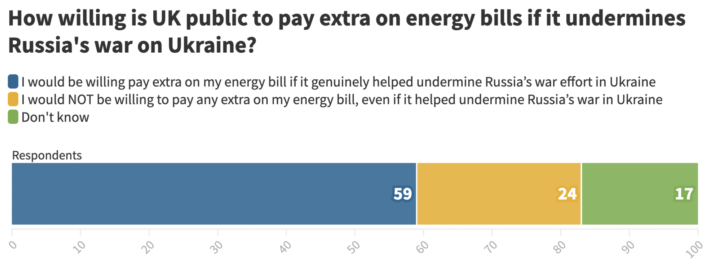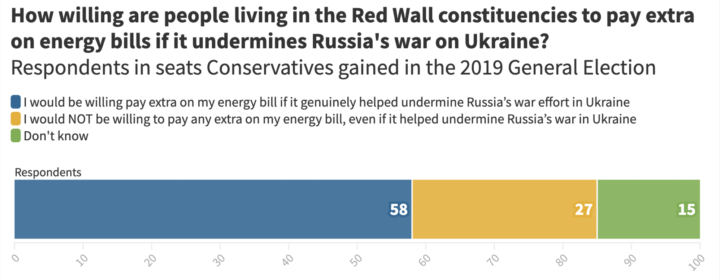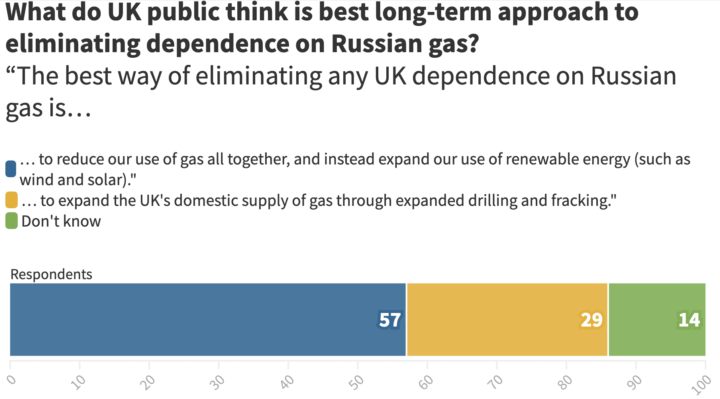Polling: majority willing to chip in on energy bills to undermine Russia’s gas war chest
Clear majority (59%) of people are willing to pay extra on energy bills if it helps undermine Russia's war in Ukraine, with only 24% not.

By Dr Simon Cran-McGreehin
@SimonCMcGShare
Last updated:
New polling of 2000 UK adults by Opinium for ECIU has found that a clear majority (59%) of people are willing to pay extra on energy bills if it helps undermine Russia's war in Ukraine, with only 24% not.

This applies also to those in Red Wall constituencies (Conservative gains in the 2019 general election), 58% of whom are willing to pay more.

Replacing Russian in the short-term with other sources
The UK gets 4% of its gas from Russia which equates to £6million a day under recent wholesale prices. Russia has been building up a ‘war chest’ in recent years in part thanks to its fossil fuel revenues. For example, in 2021, Russia received revenues of $119billion from sales of oil and gas.
Replacing Russian LNG (liquid natural gas which is brought to the UK on ships) in the short-term with other sources, likely LNG from other countries, could add to UK costs with the international price of gas so high.
According to research by ECIU and Uplift, using data by Rystad Energy, it would take years to bring extra North Sea sources online. New wells would not reach peak output until 2028, before declining a few years later. Fracking in the UK is deeply unpopular with the public. The latest Government polling shows 45% oppose fracking and only 17% support it.
Public see reducing gas use in longer-term
The polling also found a clear majority (57%) of the public see the best way of eliminating UK dependence on Russian gas in the longer-term as reducing our use of gas all together, and instead expanding renewables.
Less than a third (29%) see increasing the UK's domestic supply of gas through expanded drilling and fracking as the solution.

Expanding British renewables and insulating homes
The British public is willing to chip in to get the UK off Russian gas and see net zero policies as the solution. This means expanding British renewables and insulating homes so they waste less energy. More gas won’t bring down the energy bills of those struggling to pay, but insulation can and does so permanently.
Installation of insulation and heat pumps will help to reduce gas use among households. The government’s Boiler Upgrade Grant Scheme will start in April, making £5,000 available for homes to switch from gas boilers to electric heat pumps.
There are an estimated 9million homes in the UK that have good levels of thermal efficiency and could have a heat pump fitted easily. The Energy Systems Catapult has found that all housing types are suitable for heat pumps.
Some homes require extra insulation for a heat pump to operate optimally, but homes with an EPC rating of A-C are likely to need little or no extra insulation.
ECIU estimates that this accounts for around 9million UK homes, based on taking the number in each EPC band, sharing out in proportion those that don’t yet have an EPC rating, and matching the total to the UK housing stock of 28million homes.
British Gas owner Centrica is in talks to exit its supply deals with Russian gas firm Gazprom “as a matter of urgency.” And dockers in Kent have refused to unload two tankers carrying Russian gas.
Share